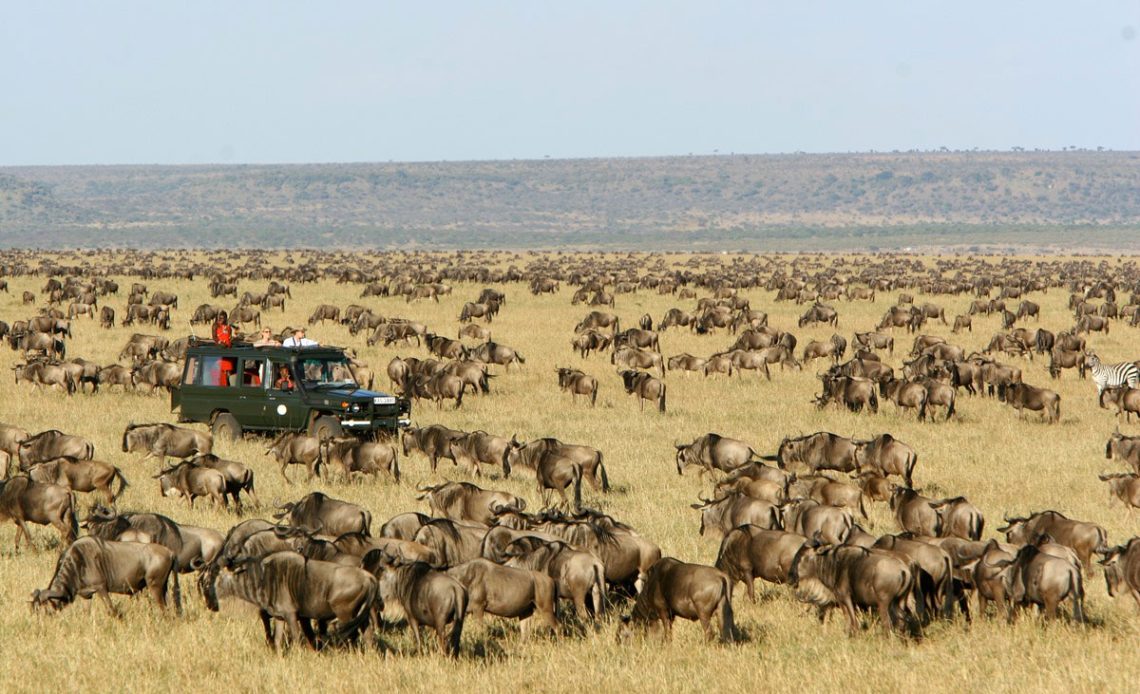Recently, I embarked on an awe-inspiring journey to the Masai Mara National Reserve in Kenya, a place that had always been on my travel bucket list. There are few places in the world that deliver such an authentic and impactful wilderness experience. I want to share my personal experiences, tips and recommendations with anyone planning to visit this stunning piece of Earth, also known as the “jewel of Africa”.
Places to Visit
In my opinion, the heart of Masai Mara lies in its vast savannahs teeming with wildlife. My first stop was the Mara River, famous for its dramatic wildebeest crossings and large population of crocodiles. Seeing thousands of wildebeests and zebras braving the treacherous currents, while dodging hungry crocodiles, was a sight I will never forget.
Next on my list was a visit to a traditional Masai village. Experiencing the vibrant culture, intricate beadwork and engaging storytelling of the Masai people provided a fascinating counterpoint to the natural wonders. I highly recommend it for a culturally immersive experience.
The Leopard Gorge, popularized by the BBC series ‘Big Cat Diary’, was another highlight. Seeing leopards in their natural habitat was utterly thrilling. If you’re a bird enthusiast like me, the Mara Triangle is a must-visit, hosting over 470 bird species, including the crowned cranes, lilac-breasted rollers and marabou storks.
Expenses
My journey was planned with a mid-range budget in mind. The entry fee for non-residents was $70 per day as of my visit in 2023. Accommodation costs varied widely depending on personal preference. I stayed at a mid-tier tented camp, which cost me about $250 per night inclusive of meals and game drives.
The cost of visiting a Masai village was approximately $20, contributing directly to the local community. Food within the reserve can range from $10 to $30 per meal if not included in your accommodation package. Please remember that these prices are subject to change.
Camping Tips
Camping in the Masai Mara was a dream come true. It allowed me to truly immerse myself in the wilderness, under the vast African sky. Here are my top tips:
- Choose a Secure Campsite: Opt for campsites that have security measures in place to ensure that wildlife does not wander into your camping area.
- Pack Appropriately: Be sure to pack a good-quality tent, sleeping bag suited for cooler temperatures at night and an insulating mat. Carry warm clothing for the nights and lighter wear for the hot daytime temperatures.
- Be Environmentally Conscious: Remember, you are in a wildlife reserve. Carry reusable water bottles, minimize plastic usage and ensure you do not litter the area.
- Maintain Quiet: Noise can disturb the wildlife. Be respectful of the animals in their natural habitat.
- Guides: Hiring a local guide is essential. They know the area, understand animal behavior and greatly enhance the overall experience.
Everything Else
For a truly unique experience, I took a hot air balloon ride over the reserve. The view of the sunrise over the plains, dotted with animals beginning their day, was worth every penny of the $450 I spent.
When planning your trip, bear in mind that the Great Migration, a natural spectacle where over two million wildebeests, zebras and gazelles move across the plains, generally occurs between July and October. I planned my visit to coincide with this and it was indeed a breathtaking spectacle.
FAQs
The best time to visit the reserve depends on what you want to see. For the Great Migration, plan your visit between July and October. However, the reserve offers abundant wildlife viewing throughout the year.
Masai Mara is generally safe for tourists. All safari tours are guided by experienced professionals and accommodations follow strict safety protocols. However, it’s always recommended to have travel insurance for any unforeseen circumstances.
Yes, it’s recommended to have your routine vaccinations up to date and to get vaccinated for diseases like Hepatitis A and Typhoid. Depending on your planned activities and previous vaccination history, you might also need vaccines for Hepatitis B, Rabies and Yellow Fever. It’s also advised to take precautions against Malaria. Always consult with a healthcare professional before your trip.
The official currency is the Kenyan Shilling (KES), but US Dollars are widely accepted in most places. It’s advisable to carry some local currency for small purchases.
Some camps and lodges offer Wi-Fi, usually in common areas. However, remember you’re in a remote area and the connection may not be as strong or reliable as you’re used to.
Most camps and lodges provide meals as part of their packages. The cuisine is typically a mix of international and local dishes. If you have specific dietary needs, inform your accommodation in advance.
Pack lightweight clothing in neutral colors for the daytime and warmer layers for the cool nights. A hat, sunglasses and sunscreen are must-haves. Don’t forget a good pair of comfortable walking shoes!
Conclusion
My journey through the Masai Mara National Reserve was one of the most incredible experiences of my life. The combination of stunning landscapes, abundant wildlife, vibrant cultures and the thrilling sensation of being so close to nature makes it a must-visit destination for any travel or nature enthusiast.
Remember, it’s essential to respect the local cultures and the environment. Our actions should contribute to the conservation of these magnificent places for future generations. I hope my experience helps you plan your visit to this extraordinary gem in the heart of Africa. Safe travels!

